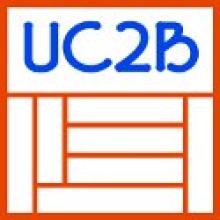UC2B At A Crossroads, Partner Selling Assets
In late February, private Internet service provider, Countrywide Broadband (CWB), announced that it and Seaport Capital together would acquire assets belonging to iTV-3, Inc. In addition to fiber networks developed in Peoria, Bartonville, and Bloomington, iTV-3 is deeply involved in bringing connectivity to the Urbana-Champaign community. The company leases fiber on the UC2B network, has expanded the network by deploying its own fiber off the UC2B fiber rings, and promised to expand the Fiber-to-the-Home (FTTH) network across the community.
In the agreement with iTV-3, the UC2B nonprofit has a right of first refusal to purchase any local iTV-3 assets deployed if iTV-3 is purchased by another company. In short, UC2B has 60 days from the date of the CWB and iTV-3 purchase agreement to decide if they want to purchase the iTV-3 fiber expansions. If the nonprofit decides not to purchase the fiber, it will continue to own the UC2B rings and CWB will own the expansion fiber.
It was only a few weeks ago that we wrote about the upcoming sale of Bristol's BVU Optinet. It is important for communities to recognize that as these networks are built, they are targets for purchase and consolidation. Fiber networks are a hot commodity and local governments may be tempted to plug short term financial problems with a sale that has implications for decades – long after those elected officials have left office.
They Chose iTV-3
The open access (FTTH) network, one of the few last-mile projects awarded funding during the first round of the American Recovery and Reinvestment Act (ARRA), cost $26 million to deploy. The network offered affordable access to residents - as low as $19.99 per month. At first, UC2B operated the network, but the organization later sought a private partner to manage and provide services. In 2014, UC2B chose iTV-3, Inc. as a partner to offer triple-play and to expand the network.



